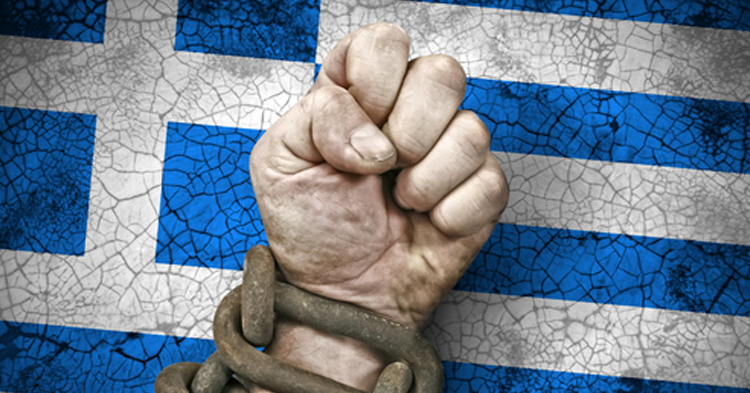Should you be worried about the crisis in Greece?
We first heard about it in late 2009, but recently it has been making headline again. Some even go as far as calling it the Greek Depression… While it is foolish to predict what the future holds for Greece, the team at MoneyShop can help you understand what has led up to this crisis and how it can affect South Africa in general, and your pocket in particular.
Once Upon a Time…
It all started thousands of years ago. First came the glorious Greek Gods. Then the divine era of the famous Greek philosophers. Fast forward 2000 odd years and you’ll find the decline of what was once one of the world’s most advanced nations. What went wrong, you ask?
Simple… After Wall Street imploded in 2008 the world’s eyes turned to Greece as it announced (in early 2009) that it had purposefully been understating the levels of debt that it had accrued. This announcement led to Greece being denied further funding and loans, considering that the likelihood that they would be able to afford to repay such loans was simply too low.
In the first half of 2010 (and with Greece spiralling towards bankruptcy), the European Commission, European Central Bank and the International Monetary Fund offered Greece a bailout to the value of €110 billion. This bailout, however, was unsuccessful and Greece now owes an estimated €320 billion.
The question that remains to be answered is whether Greece will get a second bailout and, if not, how will they approach dealing with their bleak financial future? We will all have a better idea of what happens after the referrendum on Sunday, 5 July, which will determine if the Eurozone will offer a second bailout. Until then banks will remain closed and access to cash for locals (and holiday-makers) remains limited.
Will it impact SA?
While the USA is set to gain as a result of Greece’s crisis (with the Dollar gaining strength), the picture for Africa is looking starker – specifically for South Africa and Kenya, where it is expected to have the biggest impact. Experts are forecasting that both the South African Rand and the Kenyan Shilling will drop in value. The most significant impact will be that the price of fuel will go up, and we all know the knock-on effect on ther prices.
Another aspect that may influence our economy is the fact that European countries purchase a third of all of South Africa’s manufactured exports. With Greece in financial turmoil and the whole Eurozone bracing themselves for the spill-over effect, the demand for manufactured exports is likely to be less than in the past.
It does not have to be all doom and gloom, though. If you have some spare cash, this is the ideal time for a holiday in Greece. Not only will the locals be cash-hungry, but the low currency will make for an ultra-cheap getaway. For the rest of us, it’s best to take precautionary steps, like saving more for possible lean times, we should be able to overcome any negative impacts brought on as a result of the Greek crisis. Should times get extra tough, there’s always our instant cash loan providers to help out.
MoneyShop





